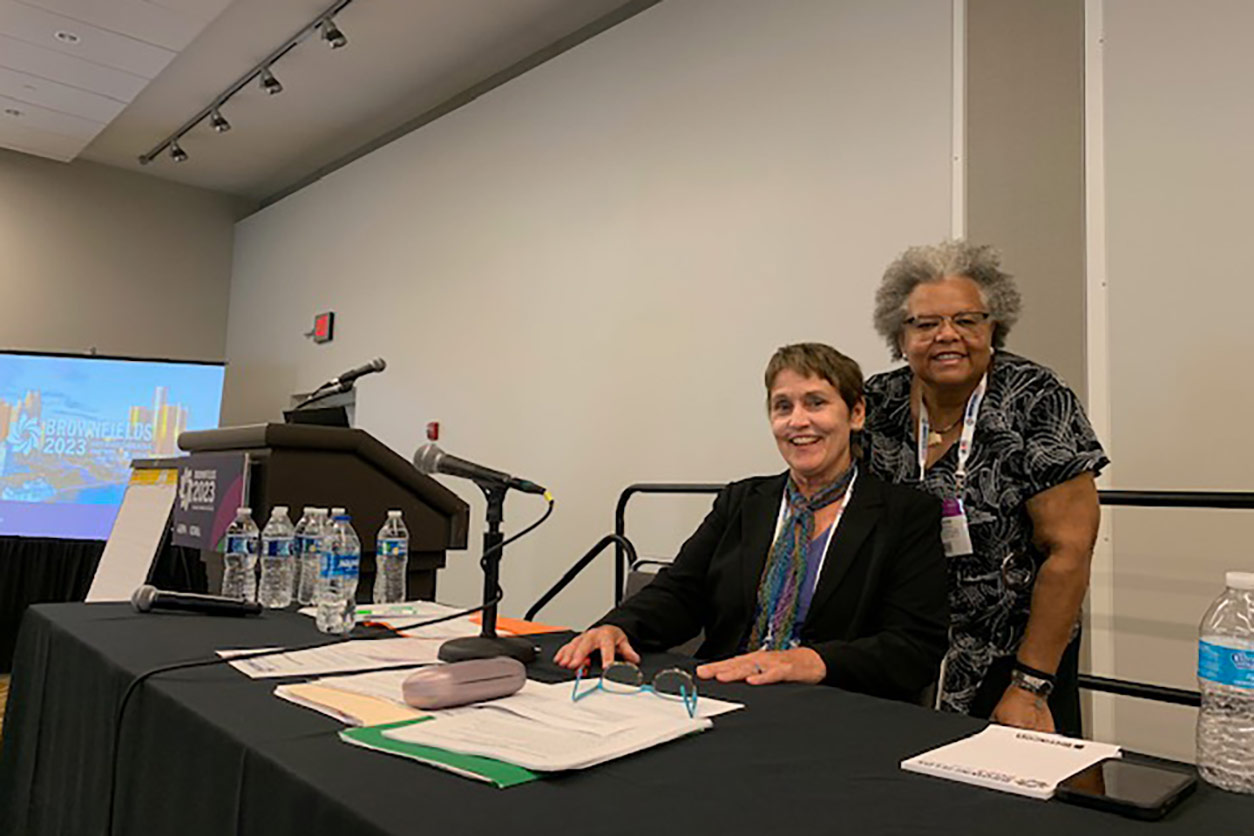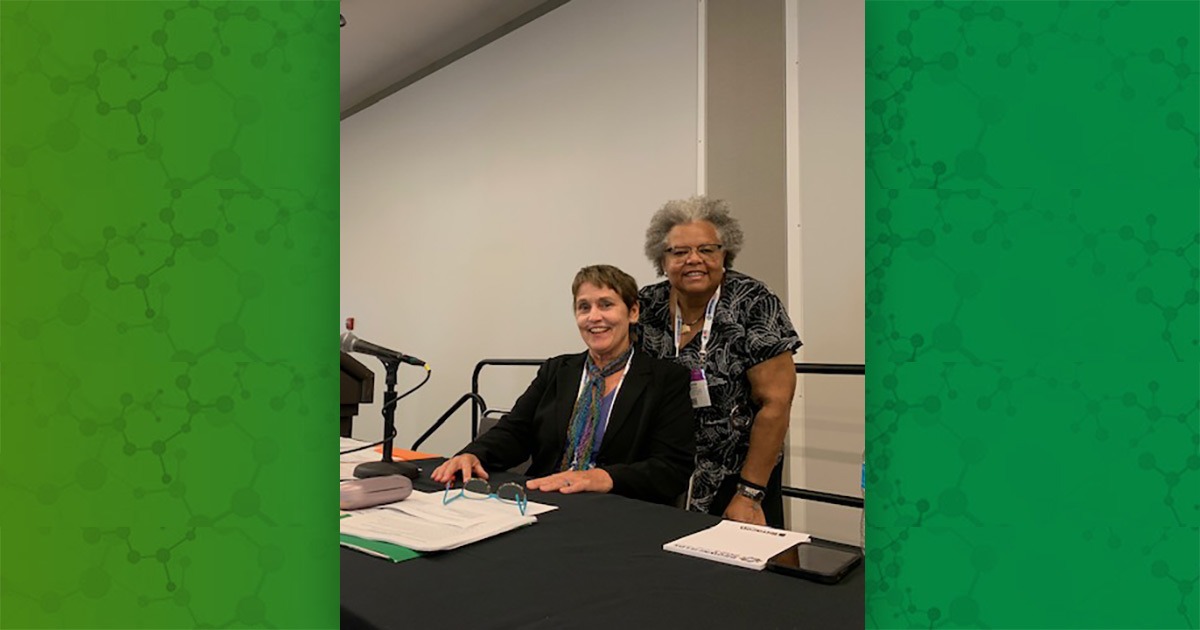The Brownfields Training Conference, held August 8-11 in Detroit, offered an opportunity for NIEHS Environmental Career Worker Training Program (ECWTP) grant recipients, government officials, and community leaders to come together.
ECWTP Director Sharon Beard and Suzi Ruhl, J.D., director of policy at the Elevate Policy Lab at the Yale School of Medicine, co-led the roundtable discussion titled “Advancing Health & Economic Justice and Family Mental Health Through Environmental Worker Training.”
“The ECWTP advances environmental justice and health equity within the context of providing jobs and skills,” said Beard. “The COVID-19 pandemic made clear that workers need life skills and mental health support as they navigate all types of stressors.”
Environment and mental health
Ruhl and Beard explored the connection between environmental career training and family mental health during the roundtable discussion.
Ruhl outlined how environmental workers and environmental justice communities may lack access to mental health services. Other stressors such as food insecurity, energy costs, and housing challenges can have a cascading effect on mental health for primary caregivers, many of whom are women, and can be compounded by environmental exposures to contaminants from the air, soil, or water at or near a brownfields site.
“The MOMS Partnership recognizes that maternal mental health is a pathway to disrupt poverty and advance economic mobility and environmental resiliency,” said Ruhl. “Workforce training is a prime opportunity to address the family mental health needs of environmental workers.”
Beard shared how the ECWTP program has been committed to environmental justice for more than 25 years. The program has expanded from training individuals for careers in environmental cleanup, construction, hazardous materials, and emergency response, to include training to become a community health worker (CHW).

Training workers holistically
Roundtable attendees discussed the mental health challenges in the communities they work with and how they integrate life skills and mental health support in their work. Maiber Solarte shared how her program trains individuals from low-income, immigrant communities and connects them with employment in hospitals and community-based organizations. Solarte is a CHW training coordinator at Make the Road New York, part of the Atlantic Center for Occupational Health and Safety Training, an ECWTP grant recipient.
“We connect trainees with local food pantries, legal support, and health services, too,” she said. Deb Sims, executive director of East End NRZ Market & Cafe, shared how her Bridgeport, Connecticut, community more openly talks about mental health and will benefit from Mount Growmore, a Brownfields to Healthfields redevelopment.
“Today’s goals were to make sure that you are aware of HHS [U.S. Department of Health and Human Services] resources and to bridge the gap between different resources,” Beard said, praising attendees for their willingness to collaborate and share resources.
Ruhl added, “This roundtable is a chance to harvest expertise and experience to strengthen how we address the needs of environmental workers and their communities moving forward.”
(Brenda Onyango is a public health specialist for MDB, Inc., a contractor for the NIEHS Division of Extramural Research and Training.)
Source link
factor.niehs.nih.gov

